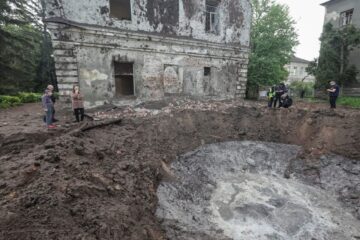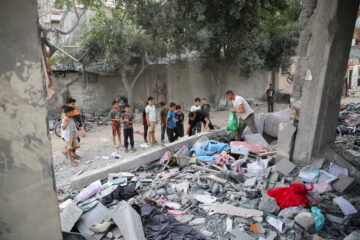Colombia to temporarily halt bombing of FARC rebels
Colombia will stop air raids on Marxist FARC rebels for a month, President Juan Manuel Santos said, a major stride in a peace process aimed at ending Latin America\’s longest-running civil war.
"To start the de-escalation of the conflict I have decided to order the minister of defense and armed forces commanders to stop bombing raids on FARC camps for a month," Santos said in a television address.
The FARC declared an indefinite, unilateral ceasefire on December 18, but Santos had until now rejected a bilateral ceasefire without a definitive peace deal.
Air raids are the government forces\’ main strategy at taking out the guerrillas.
"As far as the FARC\’s unilateral ceasefire… one has to acknowledge that they have been complying," Santos said, adding that once the month suspension of bombing missions was up, the military would make an assessment on how to move forward.
"We certainly are not going to give up bombing raids if we perceive an imminent threat," Santos underscored. "If in the course of our patrolling, carrying our routine military control of an area, confrontations take place, those are the rules of the game."
The Colombian conflict has killed 220,000 people and uprooted more than five million since the Revolutionary Armed Forces of Colombia (FARC) was launched in 1964.
The peace talks in Havana, which began in November 2012, have produced partial accords on several issues, but have yet to yield a final deal.
On Saturday, Colombia\’s government and FARC rebels announced they had reached a deal on demining.
Negotiators seeking to end the more than five-decade guerrilla war at the talks in Havana are under growing international pressure to guarantee justice for crimes committed during the conflict.
Former UN secretary-general Kofi Annan warned during a recent visit to Havana that the International Criminal Court could step in if the final peace deal did not bring justice for victims of the war.
Cuba and Norway are guarantors of the peace process.
Now in recess, the full-fledged talks are due to resume March 17.
The FARC, with some 8,000 troops, admits its insurgency has affected civilians, but denies having committed crimes against humanity or violated international humanitarian law.
The National Liberation Army (ELN), a much smaller rebellion of about 2,500, is not part of the dialogue with the FARC.
SOURCE: AFP
[do_widget_area inner_adsbar]










